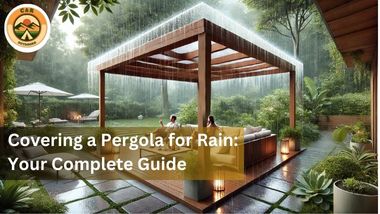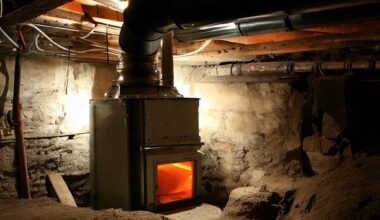Modular homes have been gaining popularity in recent years as a cost-effective and efficient housing option. But one question that often arises is whether or not these homes can have basements. So, let’s unravel the truth once and for all – do modular homes have basements?

Yes, indeed! Modular homes can have basements. I know, you’re thinking, “Really? These prefabricated wonders of modern living aren’t just for setting up on a flat plot of land?” Absolutely not! The versatility and adaptability of modular homes is part of their charm.
Now hold onto your hard hats because we are about to traverse the wonders of subterranean space in the realm of modular housing. Have you ever dreamed about having that extra layer beneath your abode? Somewhere to house that pool table or home cinema perhaps? Well dream no more, it’s time to dig deep into this topic.
Here is an article you might be interested in do weeds die in summer
Here is also another exciting article to read do you take the casing off of brats
Types of Basements Compatible with Modular Homes
There are different types of basements that are compatible with modular home construction. One common type is the full basement, which extends under the entire footprint of the home. This provides ample space for storage or even additional living quarters.
Another option is a partial basement, which only covers part of the home’s foundation footprint. This can be ideal if you need some extra space but don’t want to commit to a full basement.
Site Preparation and Construction Process for Basement Installation
Before installing a basement in your modular home, you’ll need to ensure that your site is suitable for excavation. A soil test may be required to determine if the ground can support a basement structure.
Once you’ve confirmed that your site is suitable, excavation will begin. This involves digging out the area where the basement will be located and preparing it for construction. The foundation walls are then built using poured concrete or precast panels.
Next comes setting up drainage systems and waterproofing measures to protect your basement from water damage. The floor slab is then poured, creating a solid base for your future living space.
Finally, utilities such as plumbing and electrical systems are installed before completing any necessary finishing touches on both inside and outside surfaces of the walls.
The Impact on Cost with Addition of Basement
Adding a basement to your modular home will naturally increase its overall cost compared to purchasing just an above-ground structure alone. However, the exact cost will depend on various factors, such as
- size of the basement
- complexity of site preparation
- construction process requirements.
Additionally, keep in mind that there may be additional costs for permits and inspections during both the excavation and construction phases of creating a basement in your modular home.
Specific Advantages of Having a Basement in a Modular Home
Having a basement in your modular home can provide several advantages. Some of these include:
1. One significant advantage is extra storage space for all those items you want to keep out of sight but close at hand. Whether it’s seasonal decorations or rarely used sporting equipment, having a basement gives you somewhere to store it all without cluttering up your living areas.
2. Basements offer an opportunity for additional living quarters. Need some privacy? Turn that extra space into an office or guest room! Want to create a cozy entertainment area? Convert it into a home theater! The possibilities are endless when you have a basement at your disposal.
3. Basements also serve as excellent protection against extreme weather conditions. If your area is prone to tornadoes or hurricanes, having an underground refuge provides peace of mind during these unpredictable times.
4. Lastly, basements can help regulate the temperature in your modular home. Being partially or fully underground helps insulate against extreme outdoor temperatures – keeping your home cooler in summer and warmer in winter!
Home Design Considerations when Incorporating Basement
When incorporating a basement into your modular home design plans, there are several important considerations to keep in mind.
Firstly, determine how much square footage you would like for each level- above-ground and below-ground levels should be planned wisely ensuring every square foot serves its purpose efficiently while maintaining structural integrity throughout both levels.

Secondly, consider access points from above ground level down into the basement as well as between floors within the main living areas. Stairways are a commonly used method providing easy entry/exit points between different floors.
Lastly, take into account natural light sources when designing basement areas. Incorporating egress windows or walkout basements can increase lighting while also providing secondary escape routes in case of emergency situations.
Building Regulations and Codes for Modular Homes with Basements
When building a modular home with a basement, it’s crucial to comply with local building regulations and codes. This usually means obtaining permits for excavation, foundation construction, and overall home construction.
These regulations ensure that your home meets standard safety requirements and that the construction process adheres to specific guidelines. By following these rules, you can be confident that your modular home will be both safe and compliant.
In Conclusion
Whether you opt for a full or partial basement, incorporating this additional space into your modular home can provide numerous advantages such as increased storage capacity, added living quarters flexibility, improved weather protection features, energy efficiency enhancements along with design options to meet individual needs ranging from entertainment rooms through to offices/guest bedrooms.
So if you’ve been wondering whether modular homes could accommodate this feature- now you know! The possibilities are endless when it comes to creating a personalized living space within the confines of a stylishly functional modern-day residence.
Read another exciting blog post here doe pee spray
This is the article to read for today does doe urine go bad
Frequently Asked Questions
Q: Do modular homes have basements?
A: Yes, modular homes can have basements. In fact, they can be built with basements just like traditional site-built homes.
Q: What is the difference between a modular home and a manufactured home?
A: While both modular and manufactured homes are built off-site, the main difference lies in the building codes they adhere to. Modular homes are built to the same building codes as traditional site-built homes, while manufactured homes have their own set of building codes.
Q: Can I build a basement under a modular home?
A: Yes, if your modular home is being placed on a foundation, you can definitely build a basement underneath it. This allows for additional living space or storage.
Q: Are modular homes customizable?
A: Absolutely! Modular homes offer a wide range of customization options. You can choose the floor plan, finishes, and other design elements to make it your dream home.
Q: How are modular homes built?
A: Modular homes are built in a factory setting using a process called modular construction. The home is constructed in sections, or modules, and then transported to the desired location for assembly.
Q: Do modular homes require different financing options?
A: No, modular homes can be financed using the same loan process as traditional site-built homes. Many lenders offer financing options specifically for modular homes.
Q: What are the benefits of building a modular home?
A: Building a modular home offers several benefits. They are customizable, can be built more quickly than traditional site-built homes, and often offer cost savings. Additionally, the construction process is not affected by weather conditions.
Q: Can a modular home be customized to match the rest of the house?
A: Yes, modular homes can be customized to match the existing style and aesthetic of the rest of the house. You can choose exterior finishes and other design elements that blend seamlessly with the rest of your home.
Q: Can I hire my own contractor to build a modular home?
A: While some modular home manufacturers offer the services of their own contractors for on-site assembly, you can also choose to hire your own contractor to handle the assembly process.
Q: Can a modular home be considered a prefab home?
A: Yes, a modular home falls under the category of prefab homes, as it is manufactured off-site and then transported for assembly. However, not all prefab homes are modular homes; there are other types such as panelized homes and kit homes.



